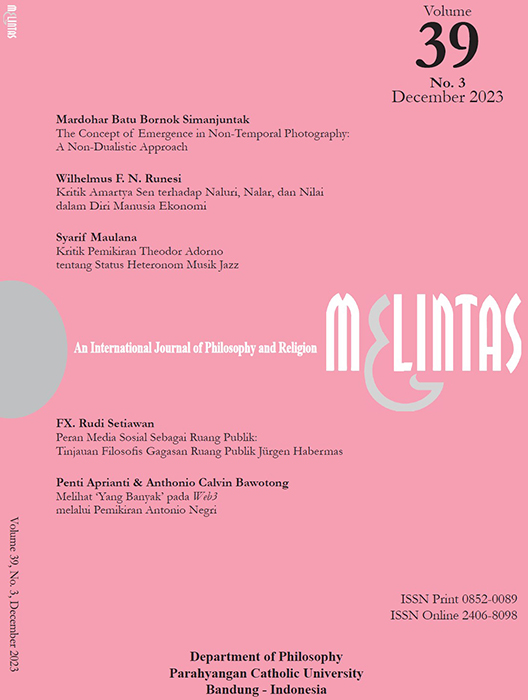Melihat ‘Yang Banyak’ pada Web3 melalui Pemikiran Antonio Negri
DOI:
https://doi.org/10.26593/mel.v39i3.7827Keywords:
multitude, Web3, exploitation, internet, biopoliticsAbstract
Modern culture, which began to develop since the 18th century, became a catalyst for the growth of information technology systems, especially the internet, which has now reached the Web 3.0 or Web3 level. At this level, the internet becomes a decentralised space when users have complete autonomy and control over the data they share consensually. However, because it is a force steeped in exploitative and manipulative agendas, Web3 is potentially vulnerable to commodity fetishism and perhaps even a return to forms of domination through capital accumulation. As a result, elements in Web3 that were promoted as resistance to internet privatization have instead become opportunities for exploitative parties to accumulate wealth. This article delves deeper into how Web3 shows the tension between dominant currents and resistance to global multinational power systems. In this context, the authors use Antonio Negri’s perspective in Empire and Multitude to investigate the complex dynamics that occur. By understanding how Web3 interacts with dominant forces and their resistance, one can explore the potential and challenges faced in positioning the development of the internet towards a more inclusive and equitable realm.
Downloads
Published
Issue
Section
License
Copyright (c) 2024 Penti Aprianti, Anthonio Calvin Bawotong

This work is licensed under a Creative Commons Attribution-NonCommercial 4.0 International License.
MELINTAS applies the Creative Commons Attribution (CC BY NC) license to articles and other works we publish. If you submit your paper for publication by MELINTAS, you agree to have the CC BY NC license applied to your work.


